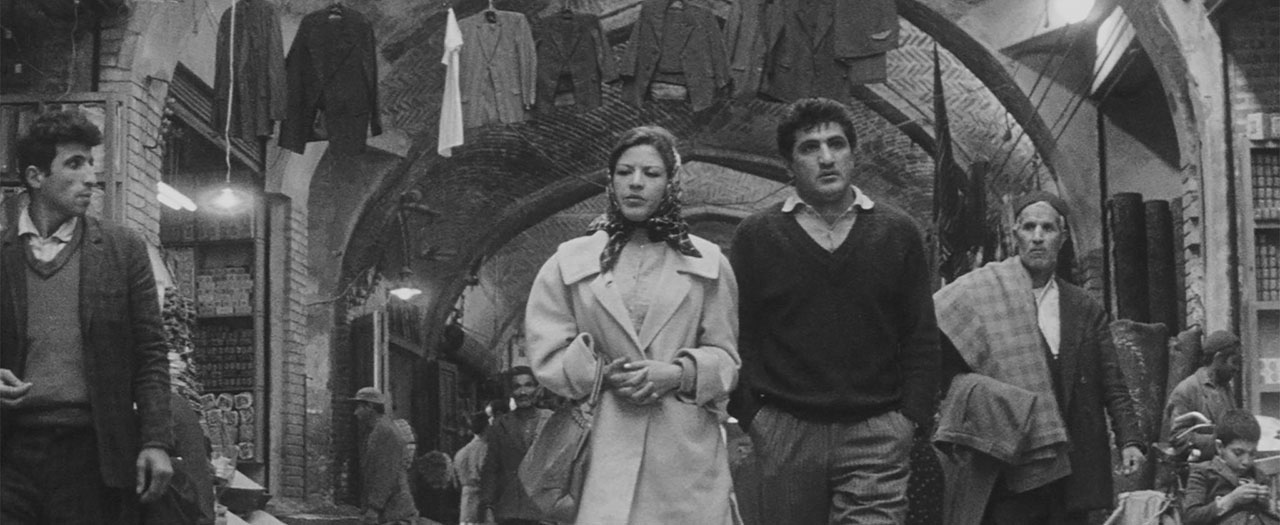Brick and Mirror [Feature]
A pioneering example of the first Iranian New Wave, and a key influence on directors such as Abbas Kiarostami and Jafar Panahi, Ebrahim Golestan’s journey through pre-revolutionary Tehran is as powerful today as it was five decades ago.
On an ordinary night, taxi driver Hashem transports a woman (poet and filmmaker Forough Farrokhzad) to the outskirts of town. Only once she’s out of sight does he discover that she has left behind a baby. With assistance from his lover, Hashem tries to find someone to take the child – but even in the seemingly calm Tehran of the early 1960s, help isn’t easy to come by.
One of only two full-length films directed by Golestan, and the first Iranian feature to use direct sound, Brick and Mirror’s importance cannot be underestimated. In its probing story, its exploration of corruption and responsibility, and its meticulously expressive imagery – as newly restored in all of its black-and-white glory – this groundbreaking classic strips away the comfortable façade enjoyed by the country’s intellectual class at the time. This restoration, by Ecran Noir Production and Golestan in collaboration with the film Archieve Cineteca di Bologna, premiered in the Venezia Classici section of the 2018 Venice Film festival.
“Iranian cinema’s first true modern masterpiece.” – Notes on Cinematograph
